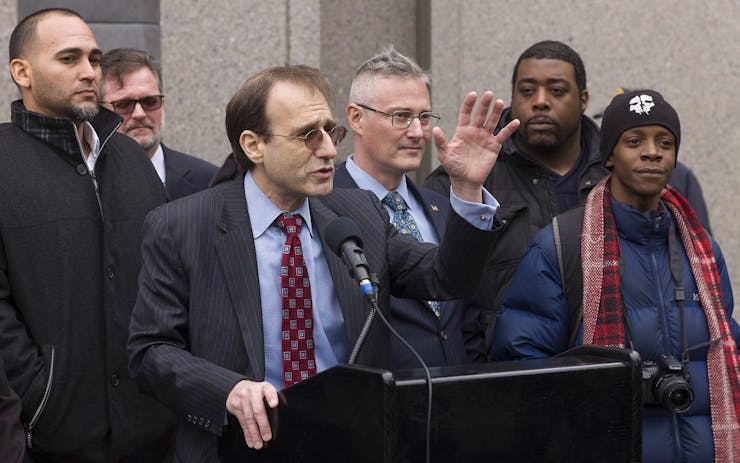Less than two weeks after hearing oral arguments in the case of Washington v. Sessions, which challenged the federal government’s scheduling of cannabis, a federal judge on Monday dismissed the lawsuit.
The medical cannabis patients must submit to the Justice Department's rescheduling process before taking their claims to federal court, the judge ruled.
Medical cannabis patients Marvin Washington, Dean Bartell, Alexis Bartell, Jose Belen, Sebastien Cotte, and Jagger Cotte, along with the Cannabis Cultural Association, filed their lawsuit on July 24, 2017. Their complaint challenged the constitutionality of the Controlled Substances Act (CSA), which places cannabis in Schedule I—the most restrictive level of drug classification.
U.S. District Judge Alvin Hellerstein’s 20-page decision stated that the case turned not on the merits of the plaintiffs’ case for the medical efficacy of cannabis but rather on procedural issues. As a point of law, he wrote, the plaintiffs were required to first argue their case through the administrative procedure set up to reconsider the placement of a drug on the federal schedule. This is known as the “exhaustion rule,” Hellerstein wrote, which requires “that parties exhaust prescribed administrative remedies before seeking relief from the federal courts.”
In other words, Hellerstein determined that the medical cannabis patients would have to petition the government before taking their claims to federal court. Past attempts by others to change marijuana’s status through the administrative process have taken years before ultimately failing.
Yes, Cannabis Has Medical Benefits, but…
The judge’s ruling acknowledged that cannabis does have current medical uses, but “I cannot say that Congress acted irrationally in placing marijuana in Schedule I” back in the early 1970s, he wrote.
“This decision,” he added, “should not be understood as a factual finding that marijuana lacks any medical use in the United States.
Nixon’s Racist Motivations
Hellerstein also rejected the plaintiffs’ contention that the racial animus of President Richard Nixon contributed to the Schedule I status of cannabis. The Cannabis Cultural Association, a nonprofit group that focuses on advancing the business footprint of marginalized groups in the cannabis industry, had alleged that the Controlled Substances Act violates the Equal Protection Clause of the Constitution because it was passed with racial animus.
While the CCC submitted evidence of President Richard Nixon’s racially motivated reasons for keeping marijuana highly illegal, Hellerstein ruled that Nixon’s racist motivations could not be attributed to Congressional lawmakers who drafted the CSA and ultimately determined the initial scheduling of cannabis.
There May Be an Appeal
Hellerstein’s ruling came as a disappointment to the plaintiffs.
“Resigning the plaintiffs to the petitioning administrative process is tantamount to a death sentence for those patients who need cannabis to live,” said Michael Hiller, lead counsel for the plaintiffs. “The time has come for the courts to abandon decades-old precedent, notched with obsolete legal technicalities, and catch up with modern science and contemporary principles of constitutional law.”
Lauren Rudick, co-counsel for the cannabis patients, added: “The plaintiffs weren’t the only ones who experienced a setback today. States and principles of federalism took a black eye as well, and under the false premise that the courts are constrained by prior decisions to take actions, which the overwhelming majority of Americans, including members of Congress and the President, know are wrong.”
“While this has been a disappointing setback in the battle to reschedule, great kudos are due to our litigation team of Joseph A. Bondy, Michael Hiller, Lauren Rudick, and Fatima Afia,” said attorney David Holland, a member of the legal team representing plaintiffs in the suit. “We were able to bring this battle into the mainstream conversation where the general public was able to identify with the suffering of many of these plaintiffs, and empathized with efforts to seek simple, safe, effective medical relief.”
Added Hiller: “This case will continue to move forward. Notwithstanding the outcome today, we remain confident that the final disposition of this case will include a finding that the classification of cannabis under the Controlled Substances Act is unconstitutional—freeing millions of Americans to safely treat their conditions with a plant that maintains their health and their lives.”





